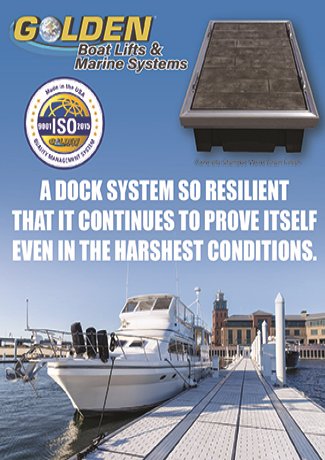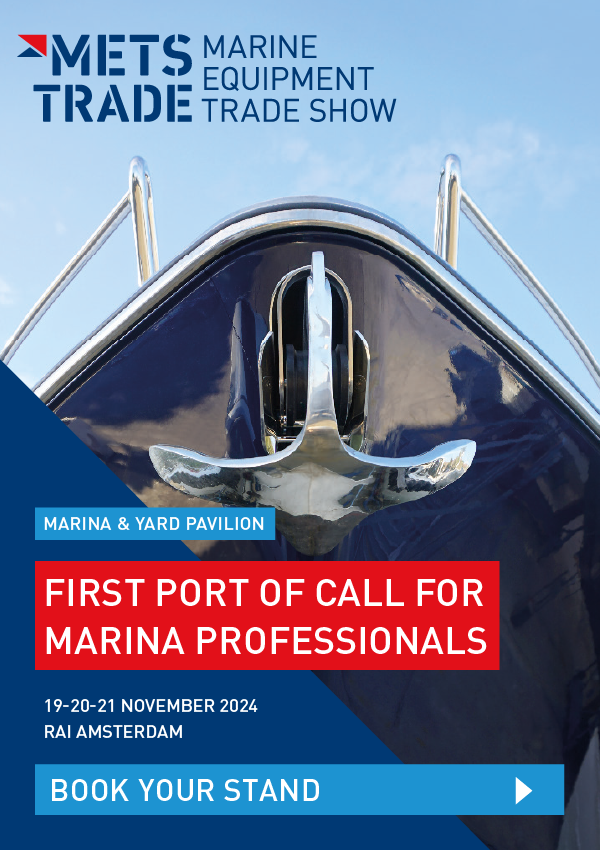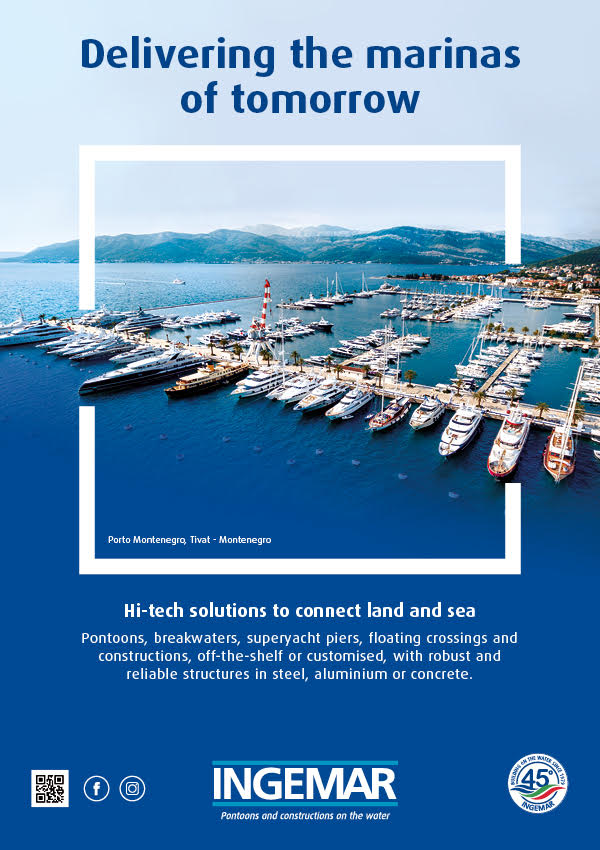In need of new marinas – and new money
Over the past few years, the Caspian Sea – the world’s largest inland body of water – has seen a lack of investment in yachting infrastructure. There are various reasons for this, including the administrative pressures of local authorities and questionable profitability. The low living standards of a large proportion of the local population also remain the key factor in discouraging potential investors. Vladislav Vorotikov reports
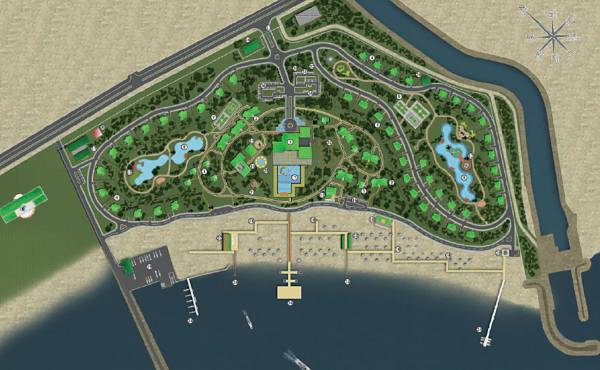
Layout of the Yelken Yacht Club and its marina in Turkmenistan. The club opened in 2010 and offers the best infrastructure in the Caspian Sea.
The last time this happened was in 2021 when Nurdaulet Kilybay, mayor of Aktau, announced plans to build a marina on the Rocky Path, part of the coastline within the city’s boundaries. He estimated that the construction could complete by 2024 or 2025, but it is yet to be started, again supposedly due to a lack of interested investors. This scenario is typical for the Caspian Sea where plans to build new sea infrastructure are so often laid out but remain only on paper.
Under a Caspian Sea port development strategy, yachting infrastructure is due to be built in the ports of Makhachkala and Derbent in the Dagestan Republic. However, it is not clear when this would happen. As of today, on the 530km (329mi) Dagestan coastline, not a single marina is in operation, according to Aliyev Ali Magomedovich, who, with a group of enthusiasts, launched yacht building in the republic.
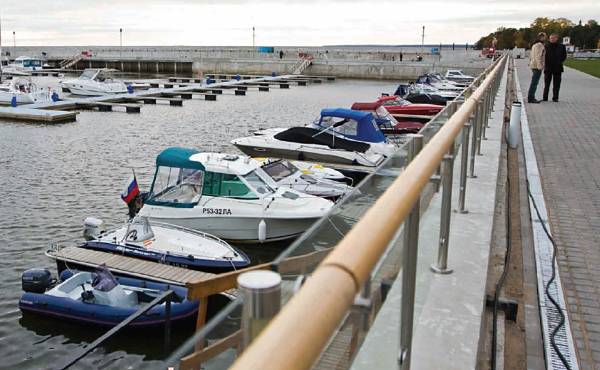
One of three yacht clubs in Baku, the capital of Azerbaijan. Local investors continue to mull over plans to build new marinas. .but there seems to be little demand for berths.
“A growing number of foreign yachtsmen are also showing interest in coming to the waters of our region. This means that there is an increasing need for modern marinas with good service. However, there are no yacht ports on the coast and a few mooring sites for small vessels that are not included in the general international tourism network,” Butyrina admitted.
Last one standing
The cost of building a marina in Aktau is estimated to be close to US$15 million, and Butyrina is convinced it would give powerful impetus to the development of yachting in this part of the Caspian Sea. Investors, however, seem not to share the same confidence, especially since the city’s only yacht club ‘Breeze’ has been fighting over the past few years with the city council for survival. The council says it wants the plot to build a new embankment.
During Soviet times, Aktau and other towns on the Kazakh coast housed several yacht clubs, but now Breeze is the last one still in operation. If it is destroyed, yachtsmen believe finding investors to build new marinas in the country will become even more challenging.
Oleg Morozov, deputy head of Breeze, disclosed that the dispute began in 2019, when a ten-year rent contract with the city council, or akimat, ended. Thanks to a public outcry, the yacht club survived the first attack, but now the authorities extend the rent agreement for only a year at a time, and in 2022 a new assault began.
“They put spokes in our wheels: the akimat comes up with various requirements that make it impossible to continue operation,” said Oleg Morozov, deputy director of Breeze. “For example, they ask us to leave the site open, which we do during the day, but this cannot be done at night as we keep yachts and boats. We have valuable navigation equipment and outboard motors on the boats.”
There are other demands put forward by the akimat, some of which are absurd and even contradict Kazakh law, according to Morozov. In 2022, a local publication Kazpravda assumed that the site currently occupied by the yacht club could eventually go to another business. This would be a classic story for Central Asia, where administrative pressure and corruption is used as a means of protecting business interests.
Tilegen Edigeev, head of the business department of the Aktau akimat, described this assumption as a “hoax”, but on the other hand, the authorities refused to guarantee to the publication that, once the city’s only yacht club with the marina is liquidated, its site instead of being used to build a tourist path would not be given to another private owner.
Forgotten yachting Mecca
Across the sea, things are pretty similar. In Baku, the capital of Azerbaijan, only three yacht clubs with marinas are currently operating. Over the past few years, local investors mulled plans to build new infrastructure, but low demand makes the financial return questionable.
“Yachting in Azerbaijan is poorly developed, although the country has gigantic prospects in this field,” said Kirill Roletsky, business development adviser of the Baku City Yacht Club, who recalls that in Soviet times this part of the country was one of the top yachting centres, declining in the 1990s when the established infrastructure fell into decay.
“The Caspian Sea is an ideal place for yachting – in Soviet times, there were a lot of yacht clubs in Baku, the whole bay was full of sails, this place was a kind of Mecca for yachtsmen. Baku winds are a godsend for sailors. They blow almost always, which allows yachtsmen to sail almost all year round,” Roletsky said.
Some yachtsmen recall that the Soviet infrastructure suffered significant destruction during the 1991 flood in Baku and never fully recovered. During Soviet times, Kazakhstan, Turkmenistan, Azerbaijan and Russia shared no borders, and yachtsmen enjoyed free movement along almost the entire Caspian Sea coast. Currently, the Caspian Sea is divided not only by borders but also by a lack of infrastructure.
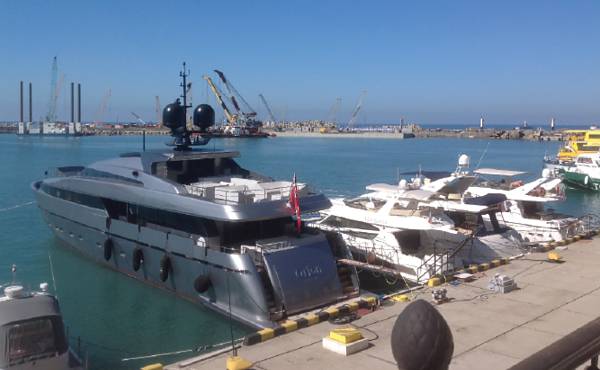
Yachting is under-developed in Kazakhstan and there is currently only one large marina. Increased interest from overseas visitors, however, could spur development.
These echo complaints voiced by yachtsmen all over the region who repeatedly call on the authorities to agree to simplify the customs regime for marina tourists in order to facilitate industry development. However, as the political relations between the countries remain complicated, this is unlikely to happen in the foreseeable future.
High hopes
It would be wrong, however, to say that the Caspian Sea has no luxury marinas. Currently, the best infrastructure in the region can be found in the Yelken Yacht Club in Turkmenistan, launched in 2013 for $80 million and primarily known because US pop diva Jennifer Lopez performed a concert at its opening.
That story was remarkable because she ended up giving away her huge fee on the grounds that she didn’t know whether or not there were any kinds of human rights issues in the country.
Local sources recall that when Yelken Yacht Club was launched, local yachtsmen hoped that it would give impetus for further infrastructure development in the region. However, no new marinas have been built in Turkmenistan over the past decade, and there are none on the horizon. Yachtsmen complain about high prices and inadequate price-quality ratio.
One source said that with the average salary in Turkmenistan in 2022 close to US$280, there is no chance that ordinary citizens could afford to own a boat. He explained that Yelken Yacht Club is focused on servicing a relatively small group of people, such as the political elite and business people. This is not enough, however, to justify additional investment in the yachting infrastructure in the country.

